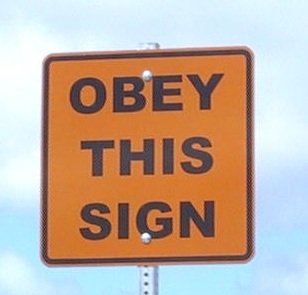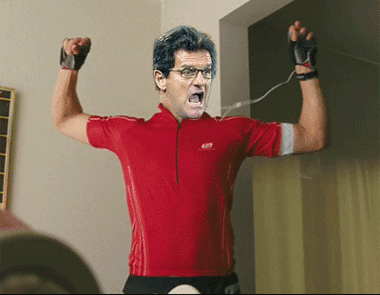Voting system - Get rid of the dead wood
... i meant that i wanted your opinions. i wanted to to be able to digest them. but you made it hard me. i was trying to me it easier for me. but unfortunatly i didn't help matters at all. so for that i apologise, LPA. that's all.

* * * * *
-

babu - >> LFC Elite Member <<
- Posts: 3826
- Joined: Fri Apr 29, 2005 1:28 pm
- Location: Malaysia
Ok fair enough, but when are you actually talking about?? I am still a bit lost Babu??
Im not being negative here, just trying to understand what you actually mean and when you are talking about!!
I mean are you talking about in general, or in the past, or the thread you cretaed, or even this thread... I mean I am really baffled here!!!

Im not being negative here, just trying to understand what you actually mean and when you are talking about!!
I mean are you talking about in general, or in the past, or the thread you cretaed, or even this thread... I mean I am really baffled here!!!

Last edited by 76-1115222408 on Thu Aug 25, 2005 2:48 pm, edited 1 time in total.
- 76-1115222408
LIVERPOOLANYTIME wrote:I mean I am really baffled here!!!
 Now you know how we feel
Now you know how we feel 
There is no-one anywhere in the world at any stage who is any bigger or any better than this football club.
Kenny Dalglish 1/2/2011
REST IN PEACE PHIL, YOU WILL NEVER BE FORGOTTEN.
Kenny Dalglish 1/2/2011
REST IN PEACE PHIL, YOU WILL NEVER BE FORGOTTEN.
-

Ciggy - >> LFC Elite Member <<
- Posts: 26826
- Joined: Thu Jul 15, 2004 2:36 pm
cisses_gona_get_ya wrote:LIVERPOOLANYTIME wrote:I mean I am really baffled here!!!Now you know how we feel



Babu , don't worry about it mate , you provided us with hours of fun .



-

woof woof ! - Forum Moderator
- Posts: 21225
- Joined: Wed Oct 01, 2003 9:22 am
- Location: Here There and Everywhere
LIVERPOOLANYTIME wrote:Nowt new in the fact you have very little input apart from banal comments!!
 Better Banal than Anal , eh Judge .
Better Banal than Anal , eh Judge . 




-

woof woof ! - Forum Moderator
- Posts: 21225
- Joined: Wed Oct 01, 2003 9:22 am
- Location: Here There and Everywhere
LIVERPOOLANYTIME wrote:Nowt new in the fact you have very little input apart from banal comments!!
For quite a while now psychologists have been interested in the development of the child’s capacity to attribute mental states to others. A first cross-cultural study of this capacity - often referred to as Theory of Mind, or ToM - just came out.
Traditionally, moral psychology has studied the nature of moral judgments, emotions, attitudes, and more generally morally invested psychological states. One question is what aspects of such psychological states should be investigated. Interestingly, philosophers have looked into the functional and representational aspects of moral-psychological states, but have by and large neglected the phenomenological aspects of these states.
To put it simply we have to consider Liveranytimes assement of the Judges contribution in terms of what is phenomenologically manifest in our conscious experience. There are many components/properties to any given conscious experience, but many (most) are not phenomenologically manifest in them. When you perceive a table, you are clearly aware of its visible features (brownness, rectangularity, etc.) in a phenomenologically manifest way. But are you also aware of the table itself, as an object over and above its (visible) properties in a phenomenologically manifest way .Some argue that perceiving a table involves or implies certain expectations as to how the table would appear should one walk around it, away from it, touch it, smell it, etc. Question: are these purely anticipatory components of perception phenomenologically manifest? It is commonly thought that perception has components that are not strictly sensorily given. For instance, when you see your computer, you are at some level aware that it has a backside. Yet the backside is not sensorily given, in that it does not register on your sensorium. So the question arises, Is this awareness of the computer’s backside phenomenologically manifest in your perceptual experience or not? What does all this mean I hear you ask yourself ? Perhaps the level of the Judges banality is dependent on the pespective of the commentator and not necessarily a valid measurement of the Judges creativity.
you may of course disagree with me ?



-

woof woof ! - Forum Moderator
- Posts: 21225
- Joined: Wed Oct 01, 2003 9:22 am
- Location: Here There and Everywhere
woof woof ! wrote:LIVERPOOLANYTIME wrote:Nowt new in the fact you have very little input apart from banal comments!!
For quite a while now psychologists have been interested in the development of the child's capacity to attribute mental states to others. A first cross-cultural study of this capacity - often referred to as Theory of Mind, or ToM - just came out.
Traditionally, moral psychology has studied the nature of moral judgments, emotions, attitudes, and more generally morally invested psychological states. One question is what aspects of such psychological states should be investigated. Interestingly, philosophers have looked into the functional and representational aspects of moral-psychological states, but have by and large neglected the phenomenological aspects of these states.
To put it simply we have to consider Liveranytimes assement of the Judges contribution in terms of what is phenomenologically manifest in our conscious experience. There are many components/properties to any given conscious experience, but many (most) are not phenomenologically manifest in them. When you perceive a table, you are clearly aware of its visible features (brownness, rectangularity, etc.) in a phenomenologically manifest way. But are you also aware of the table itself, as an object over and above its (visible) properties in a phenomenologically manifest way .Some argue that perceiving a table involves or implies certain expectations as to how the table would appear should one walk around it, away from it, touch it, smell it, etc. Question: are these purely anticipatory components of perception phenomenologically manifest? It is commonly thought that perception has components that are not strictly sensorily given. For instance, when you see your computer, you are at some level aware that it has a backside. Yet the backside is not sensorily given, in that it does not register on your sensorium. So the question arises, Is this awareness of the computer's backside phenomenologically manifest in your perceptual experience or not? What does all this mean I hear you ask yourself ? Perhaps the level of the Judges banality is dependent on the pespective of the commentator and not necessarily a valid measurement of the Judges creativity.
you may of course disagree with me ?

- 112-1077774096
so you're saying that Judge's backside resembles a dining table? 

b*ll*c*ks and s*i*e
-

Woollyback - >> LFC Elite Member <<
- Posts: 12400
- Joined: Tue Mar 23, 2004 3:11 pm
- Location: Manchester
And it's brown , depending on where your standing . 



-

woof woof ! - Forum Moderator
- Posts: 21225
- Joined: Wed Oct 01, 2003 9:22 am
- Location: Here There and Everywhere
Return to Non Football Related Polls
-
- Related topics
- Replies
- Views
- Last post
-
- How much - Wood
1, 2, 3by 112-1077774096 » Thu Jan 13, 2005 9:38 am - 37 Replies
- 2673 Views
- Last post by andy_g

Wed Jan 19, 2005 2:36 pm
- How much - Wood
-
- Vote "peeps" - Get voting
1, 2, 3, 4by 116-1065305004 » Mon Jan 31, 2005 2:14 am - 58 Replies
- 4460 Views
- Last post by the great one

Tue Feb 08, 2005 9:22 pm
- Vote "peeps" - Get voting
-
- How much wood would a woodchuck chuck - If a woodchuck could chuck wood?
by Lando_Griffin » Wed Apr 05, 2006 5:39 am - 8 Replies
- 1275 Views
- Last post by Lando_Griffin

Thu Apr 06, 2006 4:18 am
- How much wood would a woodchuck chuck - If a woodchuck could chuck wood?
-
- Favourite actor . - Forget the dead ones
1, 2, 3by woof woof ! » Tue May 09, 2006 9:54 am - 44 Replies
- 4856 Views
- Last post by CardinalRed

Sun Aug 13, 2006 12:59 pm
- Favourite actor . - Forget the dead ones
Who is online
Users browsing this forum: No registered users and 7 guests
-
- Advertisement



